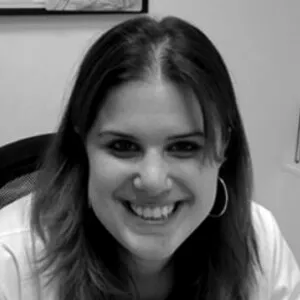6 Steps to Heal Emotional Scars from Childhood


Written and verified by the psychologist Raquel Aldana
Painful experiences that occur throughout your life can take root deep down, but it’s important to heal emotional scars. For most people, it’s extremely difficult to deal with issues like breakups, divorce, betrayal, humiliation, neglect, and injustice.
What is certain is that many people haven’t healed from those wounds, so they keep on hurting, trying to mask their pain with superficial bandages.
Unfortunately, they don’t realize that the longer they wait to fully heal themselves, the more their wounds will deepen. This becomes even more complicated when you know that something is wrong with you, but haven’t yet realized that it’s thanks to an old, unhealed wound.
So there’s some degree of ignorance, coupled with the fear of having to relive the pain, that keeps you from being yourself. You end up forcing yourself into playing a role that you hardly recognize — or one that doesn’t belong to you.
Odds are that if you’re reading this, you’ve felt the desire to get to know yourself better and improve who you are each day. That’s why in this article we want to offer a little help so you’ll know what steps to follow in the quest to heal emotional scars.
Let’s look at the six steps you need to take in order to heal emotional scars:
1. Accept your scars as part of who you are
Don’t look away from it – your scar is there. You can choose to recognize it or not, but the only way you can move forward is to face it head on. According to Lisa Bourbeaur, to accept a wound means you look carefully at it, observe it, and know that resolving such problems is part of the human existence.
Maybe you think that hiding from your suffering is the best thing you can do, but the truth is that it only makes you deny your pain, which means the wound will only deepen with time.
You have to accept and understand that you’re neither a better or worse person because something hurt you. Having built up your defensive shell is a heroic act of self-preservation, but it’s already fulfilled its function. In order to move on, it’s time to let go of that shell that once protected you.
When you accept your scars, you learn what you truly need, and this is the greatest benefit. Otherwise, you might eventually develop long-term problems like depression, anxiety, and insecurity.
You might also like: 8 habits that cause depression
2. Accept that succumbing to fear or guilt does more damage than good
If you focus all your attention on finding a guilty party, you’re wasting energy you should be using to heal your wounds. Try to forgive those who hurt you and learn to forgive yourself. It’s the only way you can open your heart again and move on.
You need to understand that making the decision and finding the willpower to overcome those old wounds is the first step towards understanding and caring for yourself. Not only are you developing these qualities for your own good, but for others as well, which results in a better emotional state overall.

In fact, this is the kind of thinking that could lead to the loss of a lot of relationships in your life. That can, in turn, create a lot of emotional pain.
3. Allow yourself to feel anger toward people who hurt you
The more damage you suffer and the deeper your wounds become, the more normal it is to assign blame and feel anger toward those responsible. Allow yourself to be angry, but learn to forgive them as well and heal emotional scars.
If you try to fight your feelings of anger you’ll only end up suppressing the pain, and it will turn into hatred and resentment. These are both extremely harmful feelings for your health.
Living a life of pain and dissatisfaction will trap you in a negative emotional spiral. And you’ll just further mask your true self, leaving you unable to open your heart.
4. Through acceptance and forgiveness comes transformation
Every single one of your experiences has taught you something. You might find that hard to accept because your ego is a mastermind at building walls to hide your inner problems.
Yes, your ego can complicate your life. But it is through your thoughts and behaviors that you learn to simplify it again. Any change will require great effort, but you must look to the future and understand that you have to be yourself.
5. See what life can be like if you leave the pain behind
Take some time to reflect on how you’ve borne your wounds over the years. They were there, controlling your actions even without you realizing it. Cast aside your masks, don’t judge yourself or criticize yourself. Put everything you have in front of you as you’re trying to heal from your wounds.
You can change your outlook in a day, or it could take months or even years. Ideally you’ll be able to say to yourself, “Okay, I’ve been wearing this mask for these reasons, but now it’s time to remove it.” That way you know you’re on the right path. For the remainder of the journey, the realization that you no longer have to hide will give you the momentum to keep moving forwards.
We recommend reading: The best advice for raising self-esteem
6. Rely on your circle of friends to heal emotional scars
Maybe you thought you could handle anything now, because you’ve been through so much worse already. But there’s no reason to stop someone who loves you from supporting and comforting you as you heal emotional scars.
Obviously the support you receive from others can be crucial to overcoming countless obstacles. Don’t shrink away from their embrace. They’re a part of you, too, and together you can build a new space in which you’ll be able to live without pain.
All cited sources were thoroughly reviewed by our team to ensure their quality, reliability, currency, and validity. The bibliography of this article was considered reliable and of academic or scientific accuracy.
- Pennebaker, J. W. (1997). Opening Up: The Healing Power of Eemotional Expression. New York: Guilford.
- Schmidt, S. (2004). Mindfulness and Healing Intention: Concepts, Practice, and Research Evaluation. The Journal of Alternative and Complementary Medicine. https://doi.org/10.1089/1075553042245917
This text is provided for informational purposes only and does not replace consultation with a professional. If in doubt, consult your specialist.








